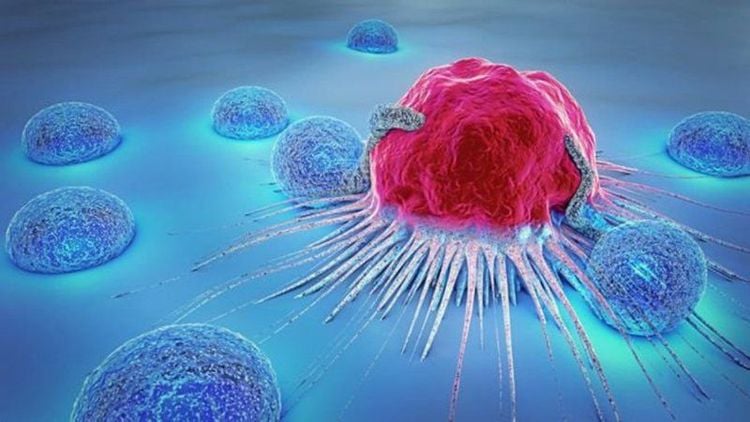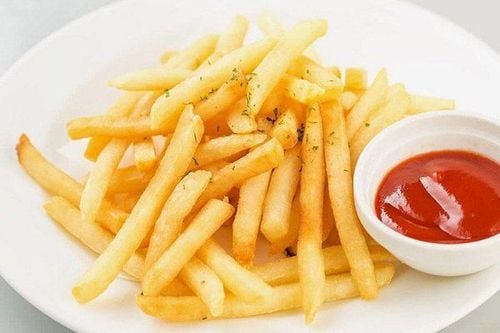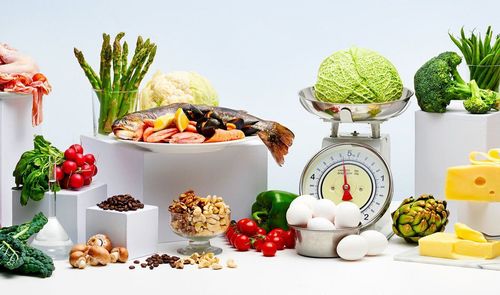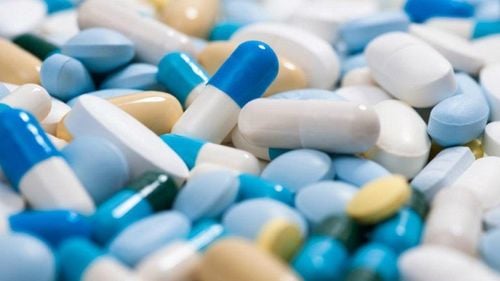This is an automatically translated article.
Acrylamide is a chemical that can form from foods during high-temperature cooking, such as frying, roasting, and baking. Acrylamide is also derived from sugars and amino acids found in foods. Acrylamide can damage genes and mutate DNA, but the risk of cancer is unknown.1. What is acrylamide?
Acrylamide is a chemical used in industries such as pulp and paper, construction, foundry, oil drilling, textiles, cosmetics, food processing, plastics, mining and agricultural industries. It is used to make paper, dyes, plastics, and in the treatment of drinking water and wastewater.Acrylamide can be found in small amounts in consumer products including food packaging and some adhesives.
Food and cigarette smoke are the main sources of acrylamide exposure for humans. Acrylamide is found in a number of foods such as chips, bread, cereals, cookies, coffee, and cocoa. Acrylamide can form naturally from chemical reactions in certain starchy foods, after cooking at high temperatures. By some calculations, more than a third of the calories we take in each day come from foods that contain acrylamide. Humans are exposed to significantly more acrylamide from tobacco smoke than from food. Smokers have three to five times higher blood levels of acrylamide than non-smokers.
Trắc nghiệm: Thử hiểu biết của bạn về bệnh ung thư
Ung thư là nguyên nhân gây tử vong hàng thứ 2 trên thế giới. Thử sức cùng bài trắc nghiệm sau đây sẽ giúp bạn có thêm kiến thức về yếu tố nguy cơ cũng như cách phòng ngừa bệnh ung thư.
Bài dịch từ: webmd.com
2. Does acrylamide cause cancer?
Studies in rodent models have found that exposure to acrylamide increases the risk of several types of cancer. In the body, acrylamide is converted into a compound called glycidamide, which causes mutations and DNA damage. However, a large number of epidemiological studies in humans have found no evidence that dietary acrylamide exposure is associated with cancer risk. One reason for the inconsistent findings from human studies may be the difficulty of determining a person's acrylamide intake based on the diet they report on.In general, the American Cancer Society does not determine whether acrylamide poses a cancer risk. Based on current research, some of these organizations have reached the following conclusions:
The International Agency for Research on Cancer (IARC) classifies acrylamide as a probable human carcinogen. The US National Toxicology Program (NTP) has classified acrylamide as a probable human carcinogen. The United States Environmental Protection Agency (EPA) classifies acrylamide as a probable human carcinogen. Workplace exposure studies have shown that high levels of occupational acrylamide exposure (which occurs through inhalation) cause neurological damage, for example, in workers who use acrylamide polymers in coal processing plant. To date, reviews of studies performed in humans (epidemiological studies) suggest that dietary acrylamide is unlikely to be associated with the risk of most common cancers. . But ongoing studies will continue to provide new information about whether acrylamide levels in foods are associated with an increased risk of cancer.

3. Ways to reduce exposure to acrylamide
People working in certain industries where acrylamide is regulated should take precautions to limit exposure.For most people, the main potential sources of acrylamide exposure are in certain foods and in cigarette smoke. Avoiding tobacco smoke can reduce your exposure to acrylamide and other harmful chemicals.
It is not yet clear whether levels of acrylamide in foods increase the risk of cancer, but if you are concerned, there are some things you can do to reduce your exposure. In general, acrylamide levels increase with cooking for longer periods or at higher temperatures and when certain types of cooking methods are used (such as frying or roasting). Here are some ways to reduce your exposure to acrylamide in food:
Limit foods that may contain a lot of acrylamide, such as potato products, especially chips, coffee and processed foods. from grains (such as breakfast cereals, cookies, and toast). Limit certain cooking methods, such as frying and roasting, and limit the cooking time of certain foods. Boiling and steaming do not produce acrylamide. Comparing frying, roasting and baking potatoes, frying is the most common cause of acrylamide formation. Baking potatoes produces less acrylamide than baking whole potatoes. Boiling potatoes and leaving them with the skin on in the microwave does not produce acrylamide. Soak raw potato slices in water for 15 to 30 minutes before frying or baking to reduce acrylamide formation during cooking. Storing potatoes in the refrigerator can increase acrylamide during cooking. So store potatoes outside the refrigerator, preferably in a cool, dark place such as a pantry, to prevent sprouting. Cooking cut potato products, such as frozen fries or potato slices, to a golden yellow rather than brown color helps reduce acrylamide formation. Toasting bread to a light brown, instead of dark brown, reduces the amount of acrylamide. Acrylamide forms in coffee when the beans are roasted, not when the coffee is brewed at home or in a restaurant.

Please dial HOTLINE for more information or register for an appointment HERE. Download MyVinmec app to make appointments faster and to manage your bookings easily.
References: cancer.org, health.harvard.edu












